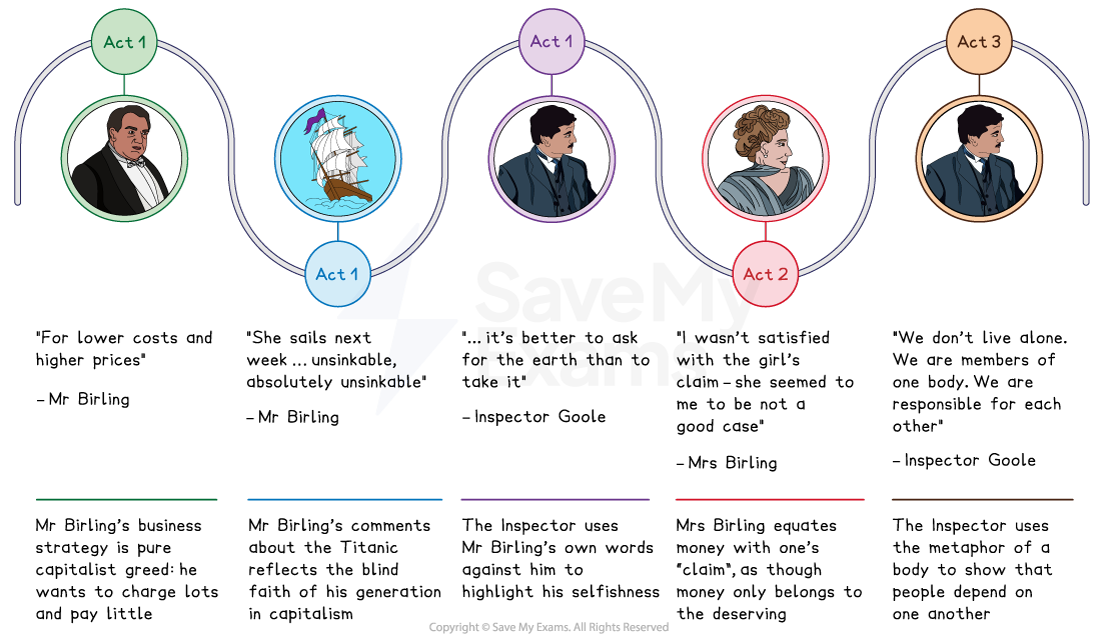An Inspector Calls Key Theme: Capitalism vs Socialism (AQA GCSE English Literature): Revision Note
Exam code: 8702
Capitalism vs socialism timeline
The theme of capitalism versus socialism in each Act of An Inspector Calls:

What are the elements of capitalism vs socialism in An Inspector Calls?
Priestley presents capitalism vs socialism in An Inspector Calls through his characterisation:
The Inspector: Embodies socialism; his investigation and moralistic speeches condemn how the poor and impoverished are victims of capitalist greed
Mr Birling and Gerald Croft: Represent the greedy industrialists who treat workers like Eva Smith as cheap labour and refuse to raise wages
Eva Smith: Her tragic fate shows the destructive potential of capitalism: she was fired for seeking a living wage, and denied charity on the basis of her perceived worth
The impact of capitalism vs socialism on characters
Priestley, as a socialist, believed that wealth should be distributed throughout society, and that the wealthy and privileged have a responsibility to support the poorest in society. The play attacks the most selfish elements of capitalism by emphasising its amoral qualities:

Character | Impact |
|---|---|
The Birlings and Gerald |
|
The Inspector |
|
Eva |
|
Why does Priestley use the theme of capitalism vs socialism in his play?
1. Setting and period
Priestley underscores how the wealthiest in society enjoy privileges and lives of excess, but are blind to the effects of their actions on the less fortunate in society
The play is a microcosm of capitalist society, set in an industrial city, in the home of a wealthy manufacturer
2. Plot driver
The play’s plot demonstrates what happens when powerful, greedy people prioritise money over the wellbeing of their fellow citizens
For Priestley, Eva Smith represents “millions and millions and millions” of impoverished people, oppressed by an economic system that puts profit before people
3. Audience appeal
Priestley’s 1945 audience was a more progressive and responsible generation, aware of workers’ rights and the rights of women like Eva
Mr and Mrs Birling and Gerald reflect an outdated ideology from which society was seeking to move away
Exam-style questions on the theme of capitalism vs socialism
Try planning a response to the following essay questions as part of your revision of this theme:
Explore how Priestley presents different attitudes towards social responsibility in An Inspector Calls?
How does Priestley use Mr Birling to represent capitalism in An Inspector Calls?

Unlock more, it's free!
Did this page help you?